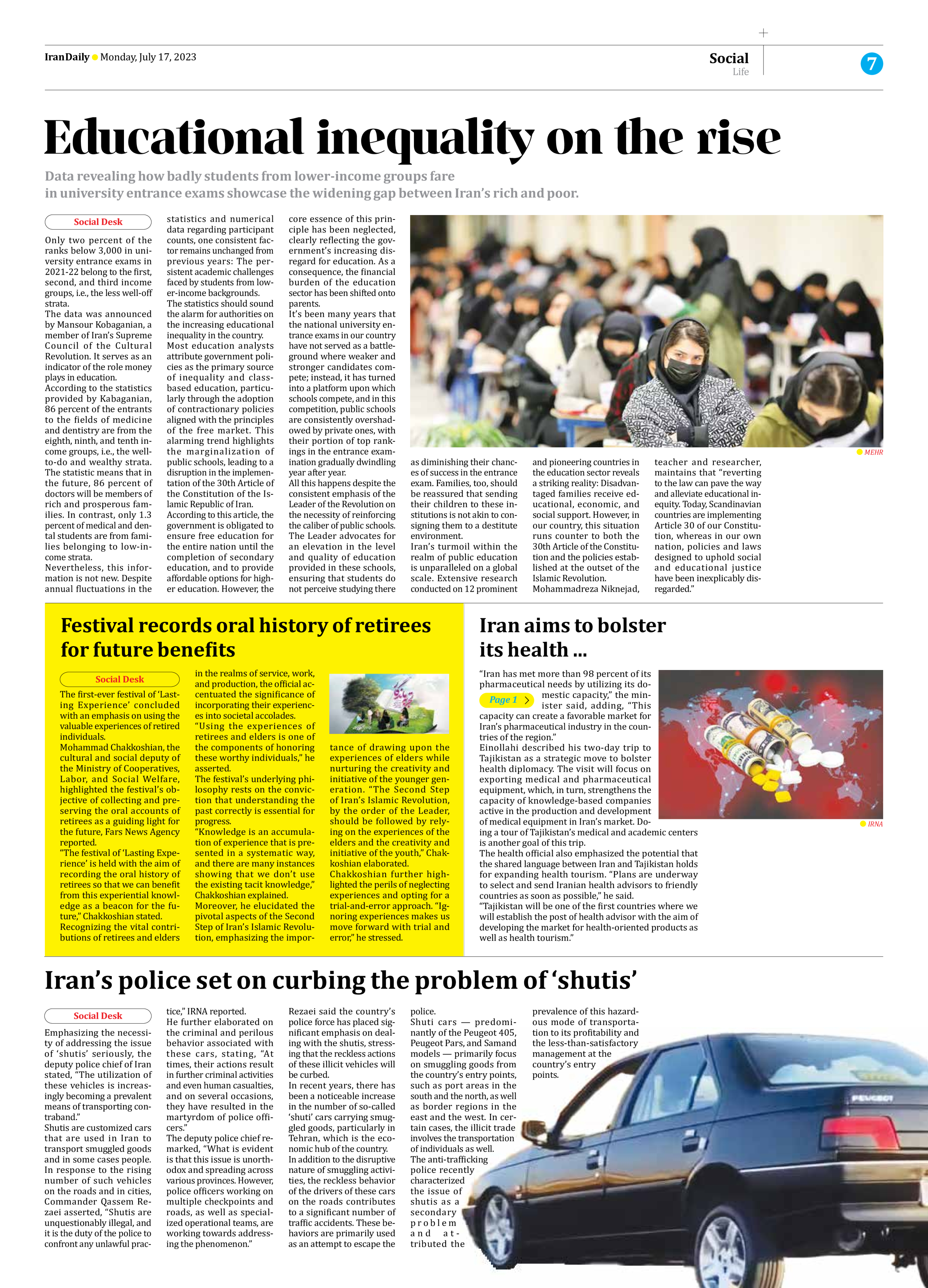
Educational inequality on the rise
Data revealing how badly students from lower-income groups fare in university entrance exams showcase the widening gap between Iran’s rich and poor
Only two percent of the ranks below 3,000 in university entrance exams in 2021-22 belong to the first, second, and third income groups, i.e., the less well-off strata.
The data was announced by Mansour Kobaganian, a member of Iran’s Supreme Council of the Cultural Revolution. It serves as an indicator of the role money plays in education.
According to the statistics provided by Kabaganian, 86 percent of the entrants to the fields of medicine and dentistry are from the eighth, ninth, and tenth income groups, i.e., the well-to-do and wealthy strata. The statistic means that in the future, 86 percent of doctors will be members of rich and prosperous families. In contrast, only 1.3 percent of medical and dental students are from families belonging to low-income strata.
Nevertheless, this information is not new. Despite annual fluctuations in the statistics and numerical data regarding participant counts, one consistent factor remains unchanged from previous years: The persistent academic challenges faced by students from lower-income backgrounds.
The statistics should sound the alarm for authorities on the increasing educational inequality in the country.
Most education analysts attribute government policies as the primary source of inequality and class-based education, particularly through the adoption of contractionary policies aligned with the principles of the free market. This alarming trend highlights the marginalization of public schools, leading to a disruption in the implementation of the 30th Article of the Constitution of the Islamic Republic of Iran.
According to this article, the government is obligated to ensure free education for the entire nation until the completion of secondary education, and to provide affordable options for higher education. However, the core essence of this principle has been neglected, clearly reflecting the government’s increasing disregard for education. As a consequence, the financial burden of the education sector has been shifted onto parents.
It’s been many years that the national university entrance exams in our country have not served as a battleground where weaker and stronger candidates compete; instead, it has turned into a platform upon which schools compete, and in this competition, public schools are consistently overshadowed by private ones, with their portion of top rankings in the entrance examination gradually dwindling year after year.
All this happens despite the consistent emphasis of the Leader of the Revolution on the necessity of reinforcing the caliber of public schools. The Leader advocates for an elevation in the level and quality of education provided in these schools, ensuring that students do not perceive studying there as diminishing their chances of success in the entrance exam. Families, too, should be reassured that sending their children to these institutions is not akin to consigning them to a destitute environment.
Iran’s turmoil within the realm of public education is unparalleled on a global scale. Extensive research conducted on 12 prominent and pioneering countries in the education sector reveals a striking reality: Disadvantaged families receive educational, economic, and social support. However, in our country, this situation runs counter to both the 30th Article of the Constitution and the policies established at the outset of the Islamic Revolution.
Mohammadreza Niknejad, teacher and researcher, maintains that “reverting to the law can pave the way and alleviate educational inequity. Today, Scandinavian countries are implementing Article 30 of our Constitution, whereas in our own nation, policies and laws designed to uphold social and educational justice have been inexplicably disregarded.”







